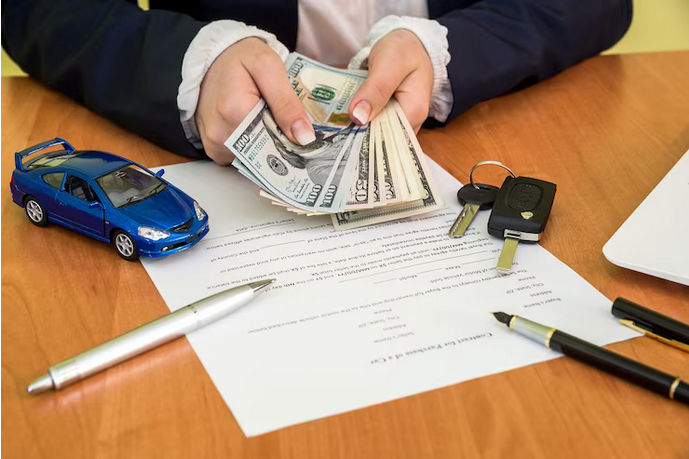California, the Golden State, is not only known for its picturesque landscapes and diverse culture but also for its strict environmental regulations. If you own a junk car in California, you may be wondering about the best way to get rid of it while possibly earning some cash in the process. Fortunately, there are options available, and this guide will walk you through the process of selling a junk car in California while adhering to the state's regulations and environmental standards.
Understanding the Need for Responsible Junk Car Disposal
Before delving into the process of selling your junk car, it's crucial to understand why responsible disposal is essential, especially in California.
Environmental Impact: Junk cars can leak hazardous fluids such as oil, coolant, and brake fluid, which can contaminate soil and water sources. Proper disposal ensures that these fluids are managed and recycled or disposed of safely.
Air Quality: Abandoned or non-operational vehicles emit harmful pollutants when left to decay. California has stringent air quality standards, and removing these clunkers can help improve the state's air quality.
Aesthetic Value: Junk cars are often eyesores, negatively impacting the appearance of neighborhoods and properties. Responsible disposal enhances the overall aesthetic of the environment.
Safety: Junk cars can pose safety hazards, especially when they attract unwanted attention or become targets for vandalism or illegal activities. Removing them contributes to community safety.
Steps to Selling a Junk Car in California
Selling a junk car in California involves a series of steps, starting with preparation and culminating in the removal and disposal of the vehicle.
1. Assess the Condition of Your Junk Car: Before proceeding, evaluate the condition of your junk car. Consider its age, extent of damage, whether it runs or not, and whether it's missing critical components like the engine or transmission.
2. Determine the Value: While it's a junk car, it still has value in terms of salvageable parts and materials. Research the market value for scrap metal and inquire about parts that may be valuable.
3. Gather the Necessary Documents:
Certificate of Title: Ensure you have the car's title, which serves as proof of ownership. If you've lost it, contact the California Department of Motor Vehicles (DMV) to obtain a duplicate.
Release of Liability: Fill out a Notice of Transfer and Release of Liability form to notify the DMV that you are no longer responsible for the vehicle. This protects you from any liability associated with the car after the sale.
4. Research Potential Buyers:
Junkyards and Scrap Yards: Many junkyards and scrap yards in California buy junk cars for their valuable metals and parts. Research reputable and licensed establishments in your area.
Private Buyers: Some individuals and mechanics may be interested in purchasing junk cars for restoration or parts. Advertise your car on local classifieds or online platforms to reach potential private buyers.
5. Request Price Quotes: Contact potential buyers and request price quotes for your junk car. Be prepared to provide accurate information about the car's condition, including any valuable components.
6. Choose a Buyer:
Junkyards: If you opt for a junkyard, select one that offers competitive prices and adheres to environmental regulations for responsible disposal.
Private Buyers: If you choose to sell to a private buyer, ensure that they understand the process, and transfer the title properly to complete the sale.
7. Schedule Pick-Up or Delivery: Coordinate with the buyer to arrange for the removal of your junk car. Many junkyards offer towing services as part of their purchase, making it convenient for you.
8. Complete the Sale:
Transfer the Title: When the buyer arrives, complete the necessary paperwork, including transferring the title to the new owner. Ensure that you keep a copy of the completed title transfer for your records.
Get Paid: Once the sale is finalized, you should receive payment for your junk car. Many transactions involve cash or a cashier's check.
Environmental Responsibility in California
California places a strong emphasis on environmental responsibility, and this extends to the disposal of junk cars. When selling your junk car, you can take pride in contributing to the state's efforts to reduce pollution and improve air and water quality. Junk cars contain various materials, including metals and fluids, which, when disposed of irresponsibly, can have detrimental effects on the environment.
Responsible disposal involves recycling or disposing of these materials in an environmentally friendly manner. Many junkyards and scrap yards in California are licensed and regulated to ensure they adhere to these standards, making them a responsible choice for selling your junk car.
Conclusion
Selling a junk car in California is not only a practical way to declutter your property but also a responsible step towards protecting the environment and adhering to the state's regulations. By following the steps outlined in this guide, you can successfully sell your junk car while ensuring that it's disposed of or recycled in an eco-friendly manner. Whether you choose a reputable junkyard or a private buyer, responsible disposal and proper paperwork are key to a successful transaction. So, if you have a clunker taking up space, consider turning it into cash while contributing to a cleaner and more environmentally conscious California.





Comments